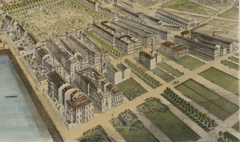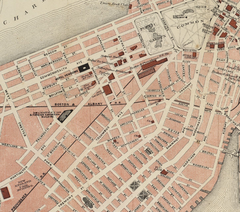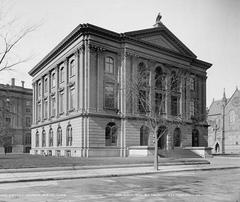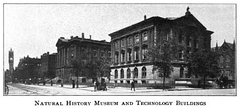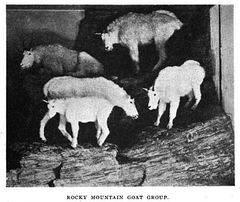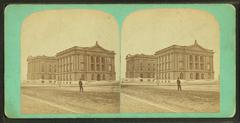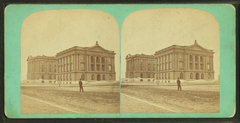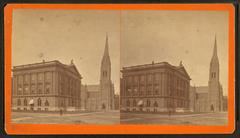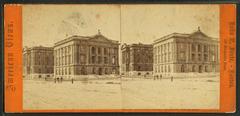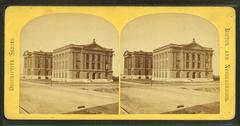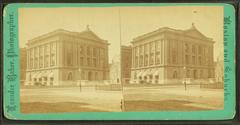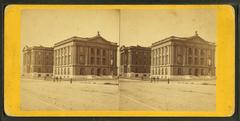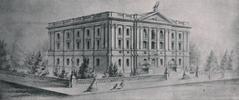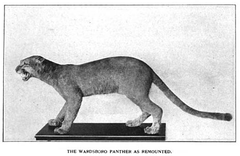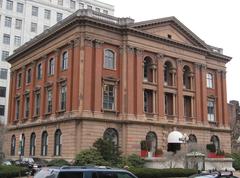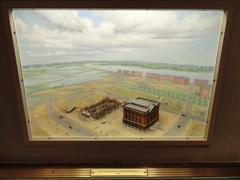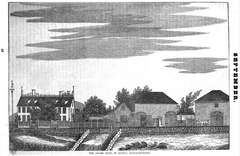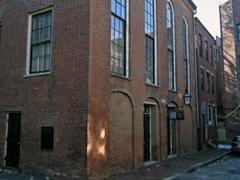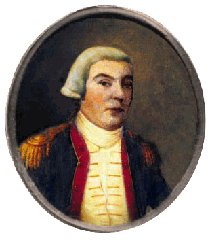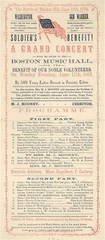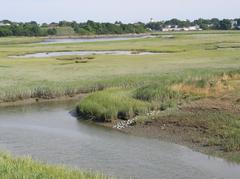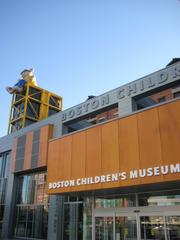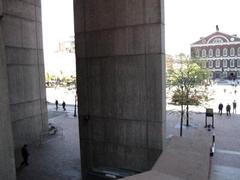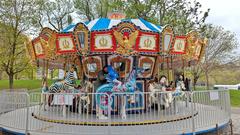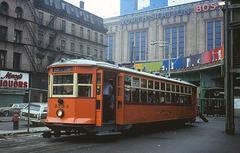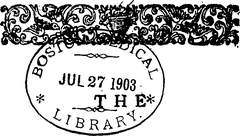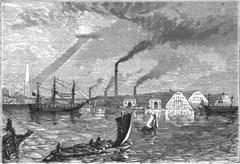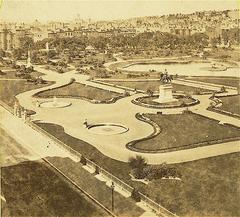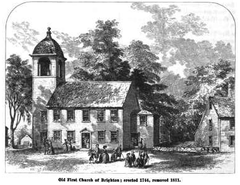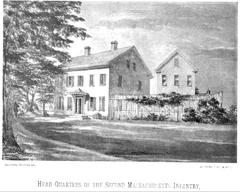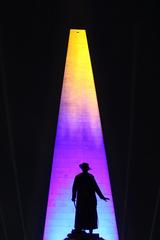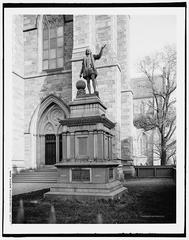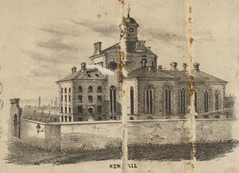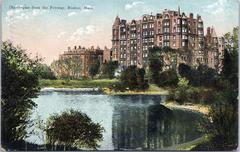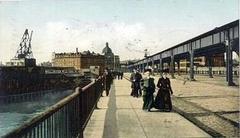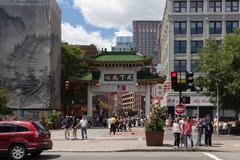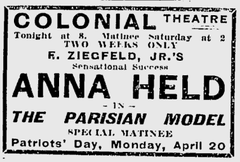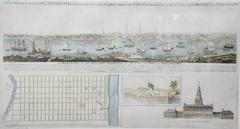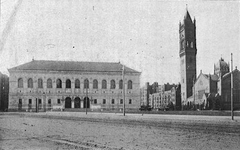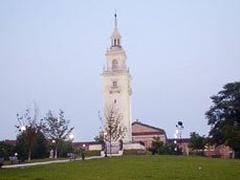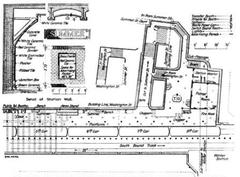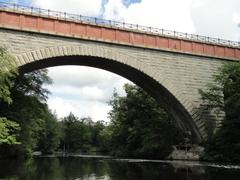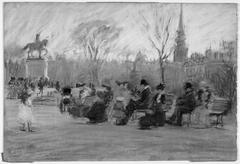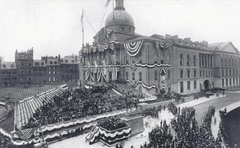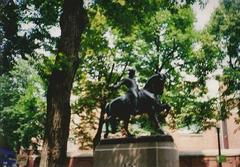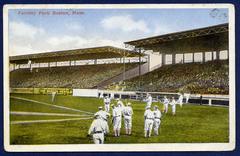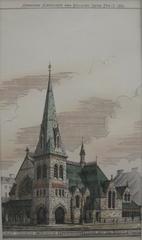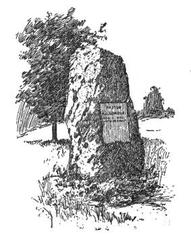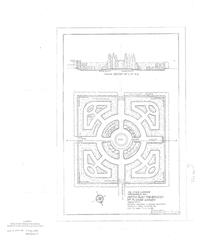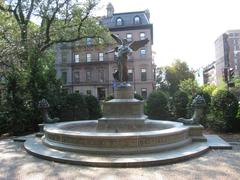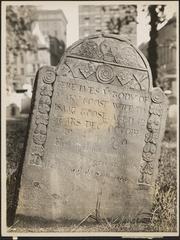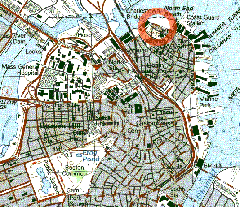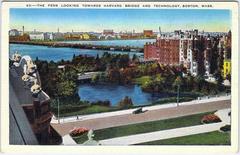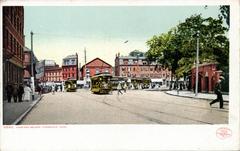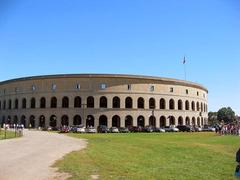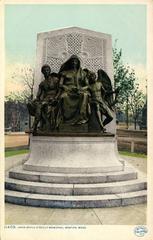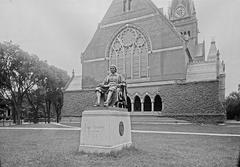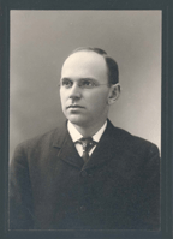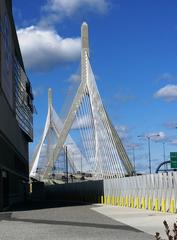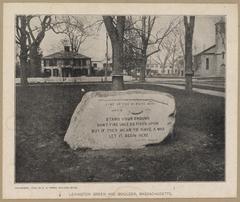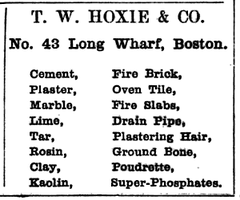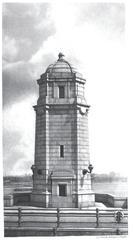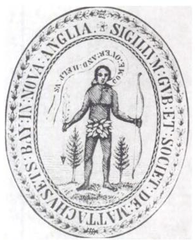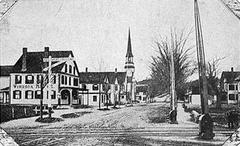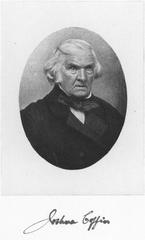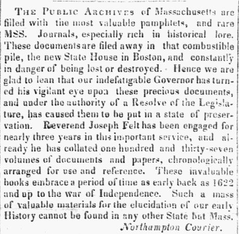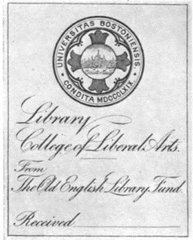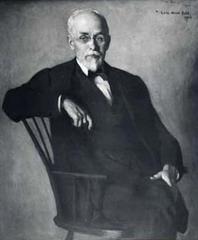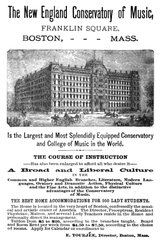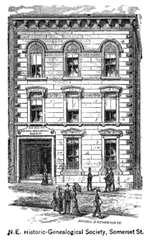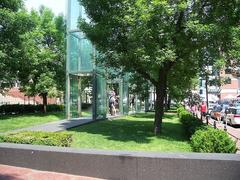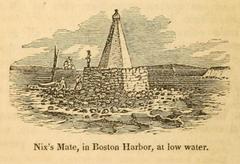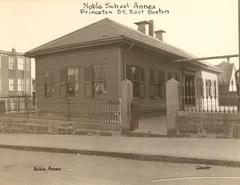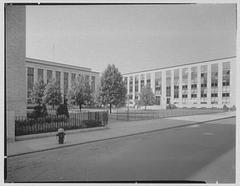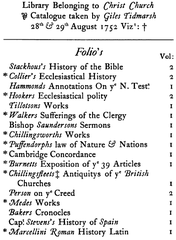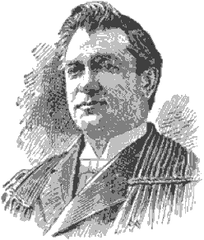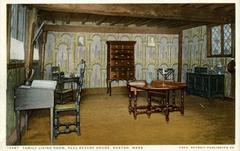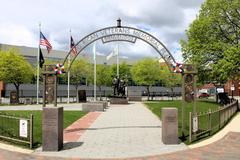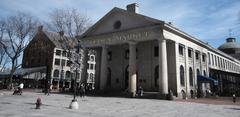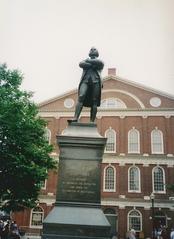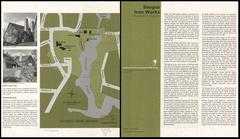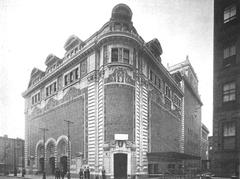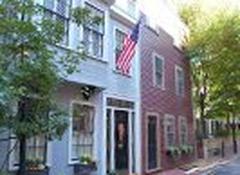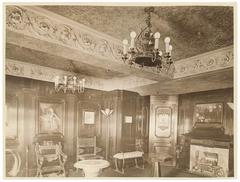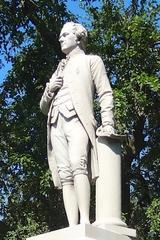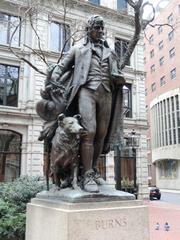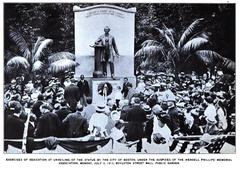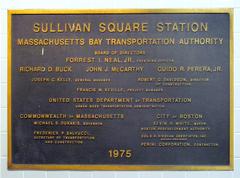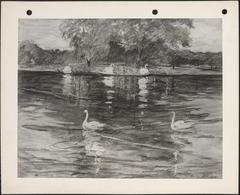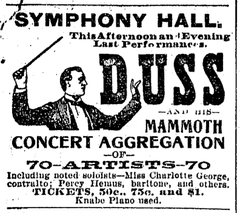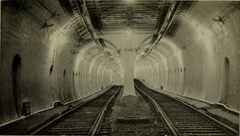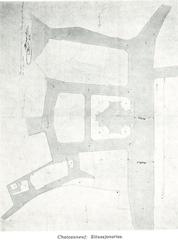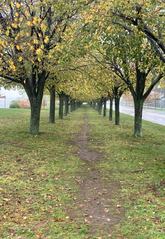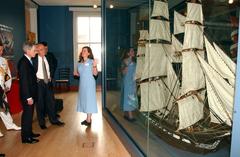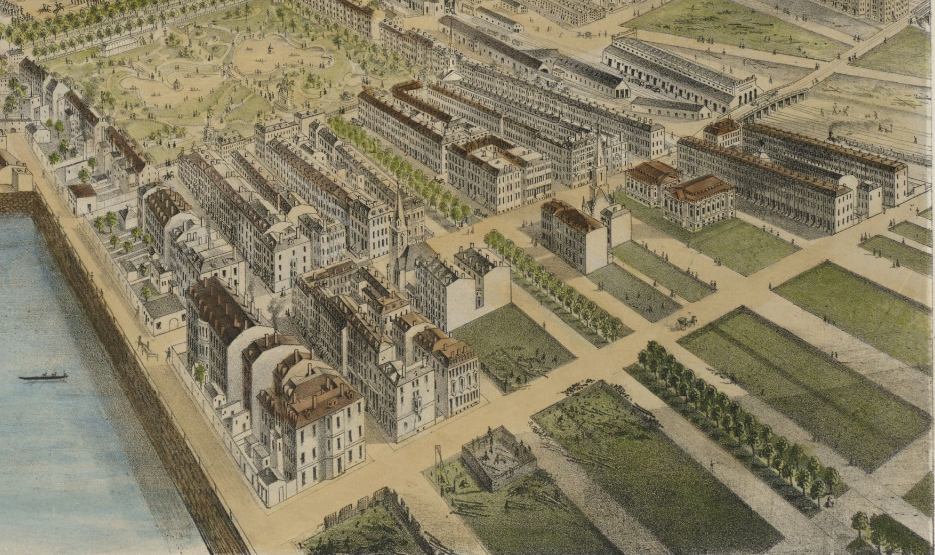
Harvard Museum of Natural History: Visiting Hours, Tickets, and Visitor Guide (Boston, Cambridge)
Date: 14/06/2025
Introduction
Situated on the historic campus of Harvard University in Cambridge, Massachusetts, the Harvard Museum of Natural History (HMNH)—formerly the New England Museum of Natural History—offers an unparalleled journey through the wonders of the natural world. As the public face of Harvard’s world-renowned scientific collections, the museum integrates research, education, and community engagement. Visitors can expect to discover everything from mesmerizing glass botanical models to colossal fossil skeletons, all within a vibrant, accessible space that welcomes guests of all ages and backgrounds (Harvard Museum of Natural History, The Family Vacation Guide).
This guide provides essential information on visiting hours, tickets, accessibility, must-see exhibits, and nearby attractions, ensuring a seamless experience for families, students, and travelers interested in Boston’s rich scientific and cultural heritage.
Contents
- Introduction
- History and Institutional Foundations
- Signature Collections & Must-See Exhibits
- Visiting Hours and Ticket Information
- Accessibility and Visitor Amenities
- Travel Tips and Nearby Attractions
- Educational Programs and Guided Tours
- Frequently Asked Questions (FAQs)
- Conclusion and Recommendations
- References & Sources
History and Institutional Foundations
The HMNH, officially established in 1998, consolidates the public displays of three prestigious Harvard research museums: the Museum of Comparative Zoology (1859), the Harvard University Herbaria (1842), and the Mineralogical & Geological Museum (1860) (Harvard Museum of Natural History). These collections originated from Boston’s vibrant scientific community and have grown to include millions of specimens and artifacts, representing centuries of global exploration and discovery.
The museum’s mission is twofold: to support advanced scientific research and deliver outstanding public education. Its exhibitions are continually updated to reflect the latest scientific findings and to foster curiosity about the natural world.
Signature Collections & Must-See Exhibits
Glass Flowers (Ware Collection of Blaschka Glass Models of Plants)
A highlight of the HMNH is the legendary Glass Flowers collection. Completed between 1886 and 1936 by Leopold and Rudolf Blaschka, this series includes over 4,400 glass models representing more than 800 plant species. Renowned for their lifelike detail and scientific precision, the Glass Flowers are a unique fusion of art and science (Harvard Museum of Natural History).
Great Mammal Hall
The two-story Great Mammal Hall features an impressive array of mammal specimens, including a suspended giraffe and a variety of mounted animals from around the globe. Original 19th-century taxidermy sits alongside modern interpretive displays, illustrating the diversity and evolution of mammals (The Family Vacation Guide).
Mineralogical and Geological Collections
Explore thousands of minerals, gemstones, and meteorites, including a 1,600-pound amethyst geode and rare specimens tracing the museum’s roots back to the late 18th century (Forbes).
Dinosaur Fossils and Evolution
See the 42-foot Kronosaurus skeleton and a complete Triceratops skull in the paleontology galleries. The museum’s Evolution exhibit traces the history of life on Earth with fossils, skeletons, and interactive displays, from ancient single-celled organisms to mammals and humans.
Arthropods & Sea Creatures in Glass
The Arthropods gallery showcases butterflies, beetles, and other insects, while the Sea Creatures in Glass exhibit features Blaschka-made glass models of marine invertebrates (Harvard Museum of Natural History).
New England Forests
Life-size dioramas and interactive displays immerse visitors in the region’s native habitats, highlighting local wildlife, ecology, and conservation efforts (The Family Vacation Guide).
Global Biodiversity
Galleries dedicated to Asia, Africa, and South America feature taxidermied specimens, habitat dioramas, and multimedia presentations illustrating Earth’s biodiversity.
Rotating Special Exhibitions
The museum regularly hosts special exhibitions addressing climate change, endangered species, and the latest research from Harvard scientists (Harvard Museum of Natural History).
Visiting Hours and Ticket Information
- Open: Daily, 9:00 AM – 5:00 PM
- Closed: Major holidays (Thanksgiving, Christmas, New Year’s Day)
- Address: 26 Oxford Street, Cambridge, MA 02138
- Phone: (617) 495-3045
- Email: [email protected]
- Website: Harvard Museum of Natural History
Admission Fees (as of June 2025):
- Adults: $15
- Seniors (65+): $13
- Non-Harvard students (with ID): $10
- Youth (ages 3–18): $10
- Children under 3: Free
- Harvard ID holders (plus one guest): Free
Combined Admission: Includes entry to the Peabody Museum of Archaeology & Ethnology (Harvard Museum of Natural History).
Discounts & Free Admission
- Massachusetts Residents: Free on Sunday mornings (9:00 am–12:00 pm) and Wednesday afternoons (3:00 pm–5:00 pm) with proof of residency. Discounted $6 tickets available via local library passes (Free Tours by Foot).
- Military Families: Free admission via Blue Star Museum program.
- Go City & CityPASS: Included in these tourist pass programs (Go City, CityPASS).
- Other Discounts: Available for teachers, EBT/WIC cardholders, and ASTC Travel Passport Program members.
Purchase Tickets: Online via the official website or at the museum entrance. Advance purchase is recommended on weekends and holidays.
Accessibility and Visitor Amenities
- Wheelchair & Stroller Access: Fully accessible entrances, elevators, and restrooms.
- Assistive Services: Large-print guides, assistive listening devices, and service animals welcome.
- Facilities: Coat room, family restrooms, benches throughout galleries.
- Food & Drink: Not allowed inside; numerous dining options in nearby Harvard Square.
- Photography: Non-flash photography permitted; tripods and selfie sticks are prohibited.
- Museum Shop: Educational gifts and souvenirs available onsite.
Travel Tips and Nearby Attractions
- Public Transit: Take the MBTA Red Line to Harvard Square; the museum is a short walk away (Boston.com).
- Parking: Limited metered parking available; public transit recommended.
- Nearby:
- Harvard Yard: Historic campus centerpiece
- Harvard Art Museums: Renowned art collections
- Charles River: Scenic walks
- Peabody Museum of Archaeology & Ethnology: Included with admission
- Harvard Museum of the Ancient Near East and Collection of Historical Scientific Instruments: Free admission with proximity to HMNH (Harvard Museums Map).
Combine Your Visit: Explore multiple Harvard museums in one day, or enjoy the vibrant shops, cafes, and parks of Harvard Square.
Educational Programs and Guided Tours
- Public Lectures, Workshops, and Family Science Days: Offered year-round—check the museum’s events calendar.
- Guided Tours: Available for groups and school visits with advance reservation (Harvard Museum of Natural History).
- Interactive Experiences: Touch tables, digital kiosks, and drawing stations engage visitors of all ages. Family guides and scavenger hunts are available at the admissions desk.
Frequently Asked Questions (FAQs)
Q: What are the Harvard Museum of Natural History’s visiting hours?
A: Daily from 9:00 AM to 5:00 PM; closed on major holidays.
Q: How do I purchase tickets?
A: Online via the official website or at the entrance.
Q: Is the museum accessible for visitors with disabilities?
A: Yes, including elevators, accessible restrooms, and assistive services.
Q: Are guided tours available?
A: Yes, for groups and individuals—advance booking recommended.
Q: Can I take photos in the museum?
A: Non-flash photography is permitted for personal use.
Q: Does admission include the Peabody Museum?
A: Yes, your ticket grants entry to both museums.
Q: Is the museum family-friendly?
A: Absolutely—interactive exhibits, family guides, and scavenger hunts are available.
Conclusion and Recommendations
The Harvard Museum of Natural History is an essential destination for anyone interested in science, culture, or Boston’s academic legacy. Its thoughtfully curated collections, engaging public programs, and accessible campus location make it ideal for families, students, and travelers alike. To make the most of your visit:
- Purchase tickets in advance, especially during weekends and school vacations.
- Plan to spend 1.5–2 hours exploring the museum, or longer if you include the Peabody Museum.
- Take advantage of free or discounted admission options if eligible.
- Pair your museum visit with a stroll through Harvard Yard or lunch in Harvard Square.
- Check the events calendar for special exhibitions and programs.
For the latest updates, special events, and to access audio guides or interactive tours, download the Audiala app. Stay connected via social media and explore related posts for more Boston travel inspiration.
